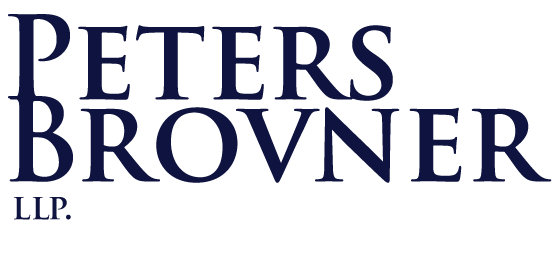Importance of Regulatory Compliance for New York City Businesses
Lesley Brovner & Mark Peters
December 3, 2024
New York State and City are highly regulated jurisdictions, and businesses operating in the City and State need to be keenly aware of the regulatory requirements that both govern business generally as well as regulations that are specific to their industry. The consequences for failure to do so can be significant.
What Is Regulatory Compliance?
Regulatory compliance means adhering to all federal, State and local rules and regulations. In order to get and remain in compliance it is important for every for profit and nonprofit entity to create a process for understanding the relevant rules and regulations, train staff on the relevant rules and regulations, and impose discipline for the failure to follow the rules and regulations.
Key Regulations Affecting NYC Businesses
Businesses need to be aware of both industry specific regulations and regulations that govern all businesses that operate in the City and State.
In many areas – such as sexual harassment and human rights obligations – the City and State have more strict requirements than federal statutes.
Benefits of Staying Compliant
There are numerous benefits of being in compliance and having robust regulatory compliance management. First, it will save you time and money as it is vastly less expensive to get and stay in compliance than to try to remedy problems after a government begins an investigation or a lawsuit is started. Second, the various regulations exist, in part, to prevent fraud and injury and compliance helps mitigate these risks. Third, proper reporting systems empower employees which is good for moral.
Risks of Non-Compliance
Achieving regulatory compliance is important for several reasons: First, if you are out of compliance the government can impose harsh penalties on your organization. Dealing with those penalties can be costly and time consuming. Second, these rules exist for a reason and if you are out of compliance, you could be endangering the health, safety and welfare of employees, customers and others who come into contact with your company. This can also expose you to civil liability. Third, if your lack of compliance becomes public – either because of a private lawsuit or government investigation – the reputational harm that you suffer can be costly to your business or nonprofit.
Impact on Business Reputation
Failure to be in compliance can have a significant impact on your business or nonprofit’s reputation. To begin with, the very fact of noncompliance can harm that reputation. If this is coupled with a public government investigation or litigation, that harm can be particularly severe. Reputational harm often translates to financial harm and can be difficult to recover from.
Regulatory Compliance and Financial Stability
Regulatory compliance can help with financial stability for a number of reasons: First, the failure to adhere to these regulations can lead to significant fines or debarment from future government contracts. Second, the reputational harm of noncompliance can lead to a loss of investors or customers. Third, many regulations are designed to prevent fraud and adhering to these regulations will help eliminate that risk.
Steps to Ensure Compliance
There are several steps to achieving compliance and having proper compliance processes in place. First is to monitor changes to all rules and regulations that apply to your industry in your geographic area. Second is to make sure new procedures are in place when rules and regulations change. Third is to train staff on new rules and regulations. Fourth is to make sure there are well known consequences for failure to follow the rules and regulations.
Contact Peters Brovner Today!
If you run a company or nonprofit in New York State or City and are unsure about whether you are in compliance with all of your obligations, or already know that you are out of compliance and need to remedy the situation, please contact the lawyers at Peters Brovner who have experience dealing with these issues.
If you or someone you know needs legal advice, please reach out to the lawyers at Peters Brovner LLP for a consultation.
ph: (917) 639-3270
email: info@petersbrovner.com
